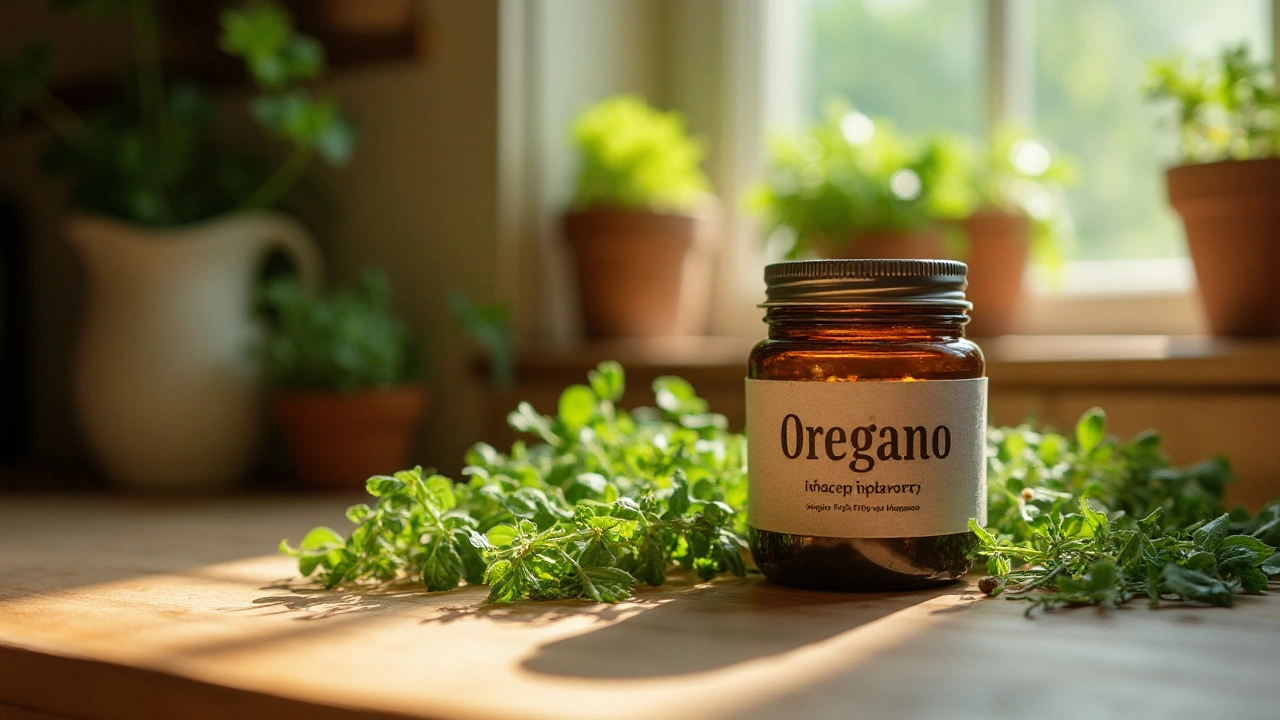Oregano: Uses, Benefits, and How to Use It
Oregano is more than pizza seasoning. This herb packs antioxidants, shows mild antimicrobial action in lab tests, and appears in kitchens, supplements, and essential oils. I’ll walk you through practical uses, simple ways to take oregano, safety tips, and what to watch for if you take other medicines.
Where and how people use oregano
Fresh or dried oregano is great in tomato sauces, roasted vegetables, soups, salad dressings, and meat rubs. Wild oregano and common culinary oregano are slightly different in flavor and oil content, but both add aroma and taste. Oregano oil is a concentrated extract used in small amounts for throat sprays, topical blends to soothe minor skin complaints, or capsules for occasional digestive support. People also make oregano tea during a sore throat or cold because it’s warming, easy to prepare, and often feels soothing.
Steep 1 to 2 teaspoons of dried oregano or a tablespoon of fresh leaves in a cup of hot water for 5 to 10 minutes, then strain and sip. Add a slice of lemon or a little honey if you like. For cooking, add dried oregano earlier in long simmering sauces and fresh oregano near the end to preserve bright flavor. For oil-based recipes, use just a drop or two of oregano oil in dressings and dilute well; it’s intense.
Lab research highlights compounds in oregano such as carvacrol and thymol, which have antioxidant and antimicrobial effects in tests. That does not mean oregano cures infections in people. Human research is small and mixed. Use oregano as a supportive, natural option for flavor and mild symptom relief, not as a replacement for prescribed medicines.
Safety, dosing, and interactions
Culinary oregano is safe for most people. Concentrated oregano oil and high-dose supplements can cause stomach upset, mouth irritation, or skin rash if applied undiluted. Pregnant or breastfeeding women should avoid medicinal doses of oregano oil and check with a clinician before using supplements. If you take blood thinners or drugs processed by the liver, talk with your doctor or pharmacist; oregano in large amounts may affect clotting or liver enzymes. Start with low doses and follow the product label. For topical use, dilute essential oil with a carrier oil at least 10:1 and do a patch test on the forearm first.
For cooking, pick food-grade oregano from trusted brands or farmers markets. For supplements or oils, look for third-party testing, clear ingredient lists, and advised dosages. Avoid products that promise quick cures. If a product is very cheap, it may be diluted or contaminated.
Use oregano to boost flavor and comfort. Treat concentrated products with care. Ask a healthcare pro when in doubt, especially if you’re on regular medication or have a health condition. Small, regular culinary use is safe and often the best first step for most people.

Discover the Top 10 Health Benefits of Oregano Supplements
Oregano supplements are more than just culinary delights; they offer a plethora of health benefits that might surprise you. From boosting immune function to fighting inflammation, oregano’s powerful properties make it a staple in natural health. This article explores ten health benefits of oregano dietary supplements, diving into how this humble herb can support overall wellness. Uncover the science-backed advantages of incorporating oregano into your daily routine.
More Detail